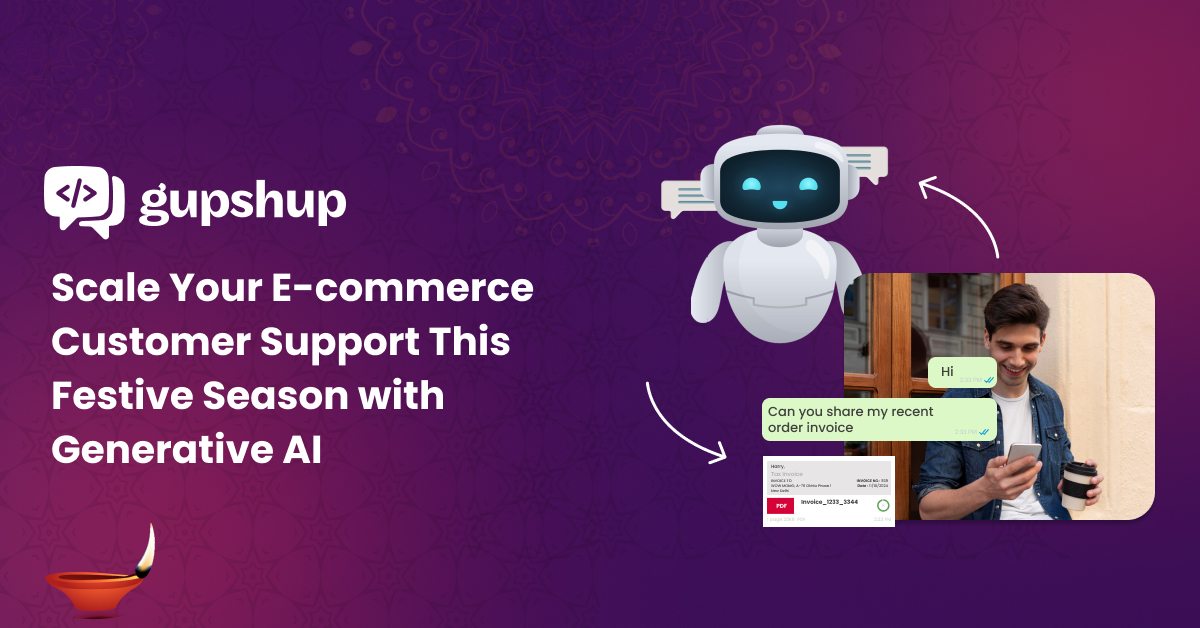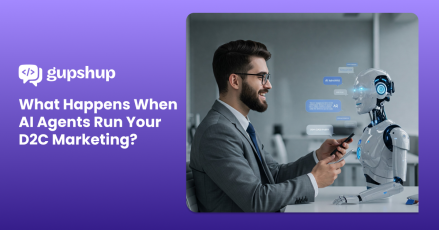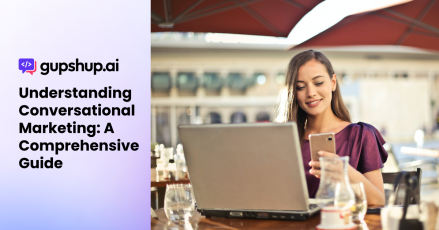Festive Season Rush: How Generative AI Helps E-commerce Scale Customer Support

Introduction
Holiday shopping used to be a predictable event: people waited till the festive season was right around the corner, flocked to stores for last-minute deals, and hoped to get their gifts just in time for the holidays.
So, retailers relied heavily on big one-time events like Black Friday or Christmas Eve to drive sales. Delivery expectations used to be lenient, and customers were happy to wait several days or even weeks for their purchases.
But things are different now. Shopping isn’t confined to December anymore. Big multinational companies now kick off their festive sales in October, a trend that’s seen immediate results, with companies reporting a 15% jump in orders early in the season. Customers have shifted gears, starting their holiday shopping earlier to avoid the rush and snag the best deals before prices rise. In fact, in 2023, 54% of consumers wouldn’t even tolerate delivery delays beyond 1-2 days.
Thus, retailers are now feeling the pressure to offer faster shipping, and Generative AI is helping them keep up. From AI-powered chatbots handling customer service to personalized promotions, retailers are making sure shoppers stay engaged and satisfied in this fast-paced season.
The holiday shopping game is now all about starting early, securing the best deals, and getting everything fast. If you’re navigating this new landscape, this article will provide you with comprehensive details on how Gen AI will help you scale customer engagement and support in the festive season.

Balancing Automation with Human Touch

As e-commerce platforms increasingly embrace Generative AI, finding the right balance between automation and the human touch has become more important than ever.
During peak shopping seasons, the flood of customer inquiries can overwhelm even the best customer service teams. This is where generative AI applications really shine—they can handle routine tasks like answering FAQs or giving personalized recommendations based on a customer’s browsing history. This boosts efficiency and also ensures that customers get quick responses, all while freeing up human agents to deal with more complex issues.
That said, while generative AI for e-commerce platforms excels in speed and personalization, there are moments when you need a human touch. Some problems require empathy or a deeper understanding that only a real person can provide.
For example, AI-powered chatbots can manage a large portion of simple, day-to-day customer interactions. But when the issue becomes more complicated, the AI smoothly hands it off to a human agent, ensuring customers receive the care and attention they need.
This hybrid approach strikes the perfect balance—allowing businesses to take advantage of AI’s speed while maintaining that all-important personal touch where it matters most.
AI’s Got Your Back: The Future of B2C Conversations Made Easy

Generative AI is transforming how businesses manage B2C communication, offering innovative ways to enhance customer interactions and streamline processes. Here’s a look at how generative AI applications are simplifying communication for e-commerce platforms:
- Growth of unified platforms: Consumers increasingly rely on multi-service platforms like WhatsApp, using them for everything from chatting with brands to completing purchases.
- Predictive and generative AI: The combination of Predictive AI and Generative AI allows businesses to analyze customer behavior and generate personalized content, improving engagement.
- Seamless omnichannel support: AI helps businesses manage customer interactions across multiple platforms, providing instant and tailored responses.
- Task automation: AI-driven chatbots manage routine queries, freeing up human agents for more complex issues.
- Anticipating customer needs: Gen AI enhances the customer experience by predicting preferences and offering personalized interactions, increasing satisfaction.
- Data-driven insights: Gen AI provides businesses with deep insights into customer behavior, aiding product development and service improvement.
- Enhanced security and accuracy: By combining predictive models with Generative AI, businesses reduce hallucinations and improve data security.
- Emerging voice and AR capabilities: Future customer engagement will incorporate advanced voice assistants and augmented reality, creating more immersive and personalized experiences.
Trigger Campaigns That Connect

Generative AI allows businesses to run highly personalized, triggered campaigns that connect with customers. These campaigns respond to customer behavior in real-time, making interactions more relevant and timely.
Take, for instance, timely reminders. One of the most common uses of generative AI for e-commerce platforms is sending abandoned cart reminders. When a customer leaves items in their cart without checking out, generative AI applications kick in to send personalized follow-up emails. These emails often include product recommendations or even incentives like free shipping or discounts, nudging the customer to complete their purchase. This tactic can work wonders—studies show abandoned cart emails can lead to a 35% increase in recovered sales.
Then there are automated campaigns, which generative AI handles effortlessly. After a customer makes a purchase, an AI-driven system can send a post-purchase follow-up email to thank them, suggest related products, or offer a discount on their next purchase.
Likewise, when someone subscribes, e-commerce generative AI can automatically send a welcome email to kick off that customer relationship on a positive note. These triggered emails keep the conversation going without marketers having to lift a finger.
What really takes it up a notch is AI-powered segmentation techniques. Generative AI is great at analyzing customer data to group people into targeted segments based on their preferences, behavior, or demographics.
This means businesses can send more relevant content to specific groups, whether that’s recommending products to high-value customers or sending reactivation emails to those who’ve been quiet for a while. This kind of personalization can lead to higher engagement and conversion rates, proving just how effective targeted marketing can be.

The Future of E-commerce with Generative AI
Generative AI continuously learns from customer interactions and allows platforms to adapt in real-time to changing consumer behaviors. Especially during high-demand shopping seasons like Diwali, generative AI for e-commerce platforms ensures that businesses can stay agile and responsive. By analyzing data from various customer touchpoints—such as browsing habits, purchase history, and engagement metrics—generative AI applications can predict customer needs and offer highly personalized recommendations.
The balance Gen AI provides ensures a smooth experience even during peak times, keeping customer service fast and effective. The continuous learning capabilities of generative AI applications mean these systems are always evolving, adapting to meet new customer expectations and helping e-commerce platforms provide personalized and efficient service all year round.
Take your e-commerce customer engagement to the next level with Gupshup. Gupshup’s Conversation Cloud lets you automate personalized interactions, streamline support, and drive conversions using AI-powered tools. Whether it’s interactive campaigns or click-to-chat ads, Gupshup enables seamless, two-way conversations that boost engagement and customer satisfaction. Ready to strengthen your customer relationships? Request a demo of Gupshup’s AI-driven platform today and experience the future of e-commerce generative AI firsthand.
Frequently Asked Questions (FAQ)
1. How does AI help in eCommerce?
AI personalizes shopping experiences, predicts demand, and optimizes inventory. It automates tasks like customer support and order management, boosting efficiency while reducing costs.
2. What is generative AI in customer support?
Generative AI creates human-like responses, handles complex queries, and personalizes support. It enhances customer satisfaction by offering instant, context-aware assistance.
3. How does generative AI affect eCommerce?
Generative AI improves content creation, personalizes recommendations, and streamlines operations, leading to higher sales and better customer engagement.




